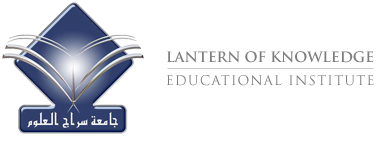Computing Curriculum Overview LOK 2023
In today’s technological society ICT and Computing skills are an essential part of everyday life at home or in the world of business, our focus is to:
- Equip young people with the knowledge, understanding and skills they need to design and make, effective digital products for others to use
- Challenge young people to reflect on what they produce and strive for excellence
- Prepare young people with professional, real-world skills in planning, project management and communication
- Provide young people the knowledge, understanding and skills they need to support future learning and exploit the creative digital industries.
Outline of Course Content
Year 7 Topics include:
- Digital Citizenship
- E-Safety
- Computer Hardware
- Graphic Design
- Algorithms and Boolean Logic
- Intro to Scratch programming
Year 8 Topics include:
- Online Safety / iDEA Award
- Binary and Data Representation
- Computer Hardware
- Advanced Graphic Design
- Modelling data and spreadsheets
- Python Programming
Year 9 Topics include:
- Online Safety
- Hardware and Computer Systems
- Computer Networks and the Internet
- Databases
- Computational Thinking
- Flowcharts and Pseudocode
- Advanced Python Programming
GCSE Computer Science J277:
Aims and Learning Outcomes:
- understand and apply the fundamental principles and concepts of Computer Science, including abstraction, decomposition, logic, algorithms, and data representation
- analyse problems in computational terms through practical experience of solving such problems, including designing, writing and debugging programs
- think creatively, innovatively, analytically, logically and critically
- understand the components that make up digital systems, and how they communicate with one another and with other systems
- understand the impacts of digital technology to the individual and to wider society
- apply mathematical skills relevant to Computer Science
Learners complete two externally assessed written papers on the following components:
J277/01: Computer systems
This component will assess:
1.1 Systems architecture
1.2 Memory and storage
1.3 Computer networks, connections and protocols
1.4 Network security
1.5 Systems software
1.6 Ethical, legal, cultural and environmental impacts of digital technology
J277/02: Computational thinking, algorithms and programming
This component will assess:
2.1 Algorithms
2.2 Programming fundamentals
2.3 Producing robust programs
2.4 Boolean logic
2.5 Programming languages and Integrated Development Environments
Assessment Overview
Component 1:
Written paper: 1 hour and 30 minutes, 50% of total GCSE 80 marks. This is a non-calculator paper. All questions are mandatory. This paper consists of gap filler questions, short response questions and extended response questions
Component 2:
Written paper: 1 hour and 30 minutes, 50% of total GCSE 80 marks. This is a non-calculator paper. This paper has two sections: Section A and Section B. Students must answer both sections. All questions are mandatory. In Section B, questions assessing students’ ability to write or refine algorithms must be answered using either the OCR Exam Reference Language or the high-level programming language they are familiar with (such as Python, currently taught at the school as per KS3 curriculum).
For more information visit: https://www.ocr.org.uk/Images/558027-specification-gcse-computer-science-j277.pdf


